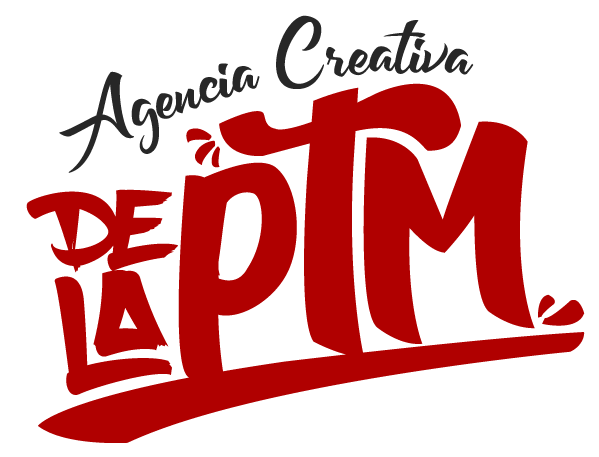The more alcohol a man drinks in one day, the more likely the man is to have abnormal sperm. Stopping heavy alcohol use can improve male fertility, and another study has shown a clear improvement in semen within 90 days after stopping alcohol. If you drink while trying to get pregnant, you may find it harder to conceive. Even drinking between one and five alcoholic drinks per week can reduce your fertility.
So, if you want a baby, read on to learn how alcohol affects your chance of a healthy pregnancy and child. An estimated 18.2 percent of American women aged engage in binge drinking (more than four drinks in one sitting), three times per month. Because drinking alcohol is a pervasive part of modern life, its impact on fertility is of great interest. If you have any concerns about the amount you’re drinking and are planning a pregnancy then consider contacting a GP. You’ll be able to get the right support to help you manage any issues you have with alcohol before becoming pregnant. The odd drink for a special occasion is unlikely to cause any issues in the run up to pregnancy.
- If you do choose to drink, aim to stay within the recommended 14 units spread throughout the week.
- By acting as genotoxic agents, EtOH and its metabolites alter the expression of specific genes involved in the hormonal regulation of spermatogenesis, and increase sperm DNA fragmentation, potentially with a transgenerational effect on the offspring.
- Overall, 4,210 participants (69 percent) achieved pregnancy during the study.
- Given the potentially devastating consequence of FASD, women who are pregnant, attempting to conceive, or at risk for unintended pregnancy should be screened for alcohol use.
The investigators note that their findings could even be the result of reverse causation, in which men with poorer sperm quality have unhealthier lifestyles and behaviors to begin with. Additionally, the men provided a semen sample and a blood sample, which assessed their reproductive hormone levels. Heavy drinking for men is generally considered to be more than 15 drinks per week. People with a history of alcohol misuse are at a heightened risk for developing low testosterone. Continuing to drink heavily while undergoing testosterone replacement therapy may undermine the treatment’s effectiveness.
Binge drinking is characterized by drinking several alcoholic beverages in a short period of time, where the blood alcohol concentration is around 0.08 g/dL [3]. According to the National Institute on Alcohol Abuse and Alcoholism, around 26% of the adult population reported binge drinking in the United States, with almost 15 million people older than 12 years showing alcohol abuse disorder [4]. This behavior is estimated to affect 4% of the adult global population [5]. If you’re a woman or somebody with a uterus and ovaries, drinking alcohol can affect your hormones and your period (menstrual cycle), and research suggests it can make it harder to conceive.
The present article briefly reviews the main preclinical and clinical evidences on this topic. Given the potentially devastating consequence of FASD, women who are pregnant, attempting to conceive, or at risk for unintended pregnancy should be screened for alcohol use. The women should also be advised against consuming any amount of alcohol, as no “safe dose” has been identified, and effects to the 7 best online sobriety support groups of 2021 the fetus may begin as early as immediately after implantation [2, 62]. Furthermore, ART should not be provided for women who are unwilling or unable to minimize their consumption of alcohol [63]. Women are more likely to abuse alcohol if they are unsuccessful in conceiving after initial infertility evaluation, so continued screening for alcohol use should be performed throughout treatment [64].
Can alcohol effect my health when pregnant?
In the brain, the enzymes, catalase and cytochrome P450 (CYP450), oxidize 65% and 20% of the EtOH into acetaldehyde (Figure 1), respectively [25]. CYP450 is a family of enzymes containing the heme group that are involved in the oxidation of steroids, fatty acids, and numerous xenobiotics of environmental origin. In particular, the cytochrome P450 2E1 (CYP2E1) activity is induced by chronic alcohol consumption, resulting in increased alcohol tolerance, oxidative stress and toxicity, with a consequently higher risk of developing cancer and liver injury [26]. Similarly, catalase, which belongs to the class of oxidoreductases, contains a heme group and is generally involved in the cellular scavenging of reactive oxygen species (ROS) [21]. The enzyme is localized in the peroxisomes, and it oxidizes EtOH in the presence of complexes that generate H2O2, such as reduced nicotinamide adenine dinucleotide phosphate (NADPH) oxidase or xanthine oxidase (Figure 1). Whereas catalase plays a marginal role in EtOH oxidation in the liver, it is involved in the development of alcohol tolerance and consumption in the brain [27].
Does drinking alcohol affect your fertility?
Except as otherwise provided, only clients who produce sperm samples are authorized to access test results and make decisions concerning sample withdrawal. Legacy does not facilitate, participate in, or endorse the use of samples for third-party reproduction, including but not limited to known or directed donor and surrogacy purposes. If you are trying to lessen your weekly alcohol intake, here are a few tips. Considering that inflammatory pathways participate in the pathophysiology of neurodegenerative disorders, an alteration of the cytokine expression in the nervous system can severely damage neuron activity [41]. EtOH exposure alters the NF-kB pathway, which is important in inflammatory and immune responses in the brain, and decreases the transcription of regulatory cyclic protein AMP-responsive element-binding protein (CREB), affecting neuronal survival and protection from apoptosis [42].
Freeze and protect your sperm with secure multi-site storage
And don’t worry if you find out you’re pregnant but were previously drinking regularly. So, ideally, both you and your partner should avoid alcohol completely once you start trying to conceive. If you do choose to drink, aim to stay within the recommended 14 units spread throughout the week. We also know that if you regularly drink alcohol in the months before your partner becomes pregnant, your baby has a higher risk of health complications. If you have polycystic ovary syndrome (PCOS), reducing alcohol is also a good idea. This is because drinking too much alcohol can cause you to put on weight or effect your blood sugar levels.
How alcohol affects female fertility
For the study, researchers analyzed semen samples over the course of two years to determine sperm health. They also conducted interviews with participants to learn more about their lifestyle habits that impact sperm, like smoking, caffeine and alcohol consumption and physical activity levels. After accounting for habits that could impair sperm health, the team determined that guys who drank four to seven servings of alcohol a week had the highest sperm counts, meaning they were more likely to be fertile. To date, findings from studies investigating the impact of alcohol on female fertility have been contradictory; some link decreases in fertility with low to moderate alcohol consumption, some showed no correlation, and others still reported a slight increase in fertility. High doses of nicotine induce a significant decrease in sperm count and motility in prepubertal and adult rats exposed to progressively increasing concentrations of nicotine [45]. Impaired testicular function is also reflected in significantly decreased testosterone levels [45, 46], although as previously suggested it’s still unclear whether these findings are valid for humans as well as rodents.
Effects on sperm quality most apparent in men who drank over 25 units/week
Your health before and during pregnancy has a big role to play in the future health of your child. And being as healthy as possible going into pregnancy can reduce your risk of complications. Drinking alcohol can increase your risk of obesity, diabetes and high blood pressure. All of which can make it harder for your body to cope with the demands of being pregnant. Drinking too much alcohol can lead to lots of different health problems.
It also found that the more drinks a man reported consuming per week, the more likely they were to have lower sperm counts. Men with a typical weekly intake above 40 units (about 32 standard drinks per week) had a 33 per cent reduction in sperm concentration compared to men who drank one to five units of alcohol per week (one to three standard drinks per week). Research looking at whether alcohol consumption impacts sperm quality has been mixed — some studies suggest a negative effect, but others haven’t confirmed this.
In both in vitro and in vivo studies, nicotine resulted involved in direct impairment of sperm motility and in apoptosis induction in rat Leydig cells [43]. Expression of PEBP1 results in production of phosphatidylethanolamine-binding the 4 stages of alcoholism for the functioning alcoholic protein 1, a protein that in humans has been shown to interact with C-Raf, MAP2K1 and MAPK1 [44]. But even drinking three standard drinks per week might be enough to reduce your sperm count.
Male fertility generally depends on the quantity and quality of your sperm. If the number of sperm you ejaculate is low, or if the sperm are poor quality, it will be difficult (and in some cases impossible) to get pregnant. Sperm health can be influenced by a range of things including your genes, age, weight, and smoking status. Here’s what you need to know about alcohol consumption and male fertility. Lifestyle, medications, and hormonal or genetic conditions can all play a role in infertility. Typically, a male hormone analysis and semen analysis can help identify underlying issues.
Smoke, alcohol and drug addiction and male fertility
A meta-analysis of 17 studies found that occasional consumption does not have a negative impact, but daily alcohol intake has a detrimental effect on semen volume and morphology. Many studies have looked at the effect of heavy alcohol use on fertility, concluding that excessive alcohol consumption has a detrimental impact on both the male reproductive hormones and semen quality. Numerous clinical studies have been conducted on alcoholic subjects to define the effects of alcohol abuse on the male reproductive capacity [17,18,19,20].
In a case of paternal alcohol exposure, the offspring showed reproductive dysfunctions similar to those reported for direct alcohol consumption, including alterations in the hormonal axis and the semen quality [113]. Acetaldehyde also impairs the enzymatic activity of superoxide dismutase (SOD) 2, a powerful endogenous antioxidant [49]. In alveolar macrophages, chronic alcohol consumption and the subsequent neurotoxic medications onset of oxidative stress alter the expression of the NADPH oxidases (Noxes), enzymes contributing to the phagocyte-mediated host defense [50]. EtOH consumption upregulates the expression of the Noxes, as well as the regulatory proteins, p22phox, p47phox, and p67phox, both in vivo and in vitro, resulting in the higher intracellular production of O₂− and H2O2, and lower GSH levels in the lung tissue [50].


